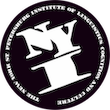Seminar: Ling G: Alternatives to Phasality
Theories of locality, i.e. theories that explain at what distances syntactic dependencies can be established, come about in two kinds: absolute and relative locality. Absolute locality targets specific domains as ‘islands’, domains where you cannot escape from or only in particular circumstances. Relative locality says that in principle there are no absolute constraints on possible distances for syntactic dependencies but rather that you cannot attract certain elements if there are other, closer elements of the same type.
The hallmark of absolute locality in the past 20+ years has been phasality, the idea that certain heads (C, v, …) form closed domains for extraction and that you can only move out of them by landing in their edge. In this course, we will question whether the phenomena that phase theory aims to account for can actually be better explained in terms of relative locality.
In the first week, we will assess evidence that v and C are phase heads and conclude that this evidence is rather inconclusive and more in accordance with relative locality.


